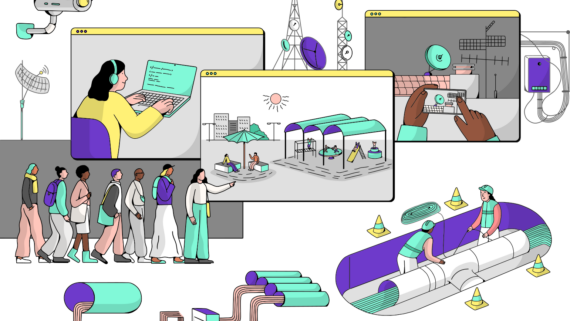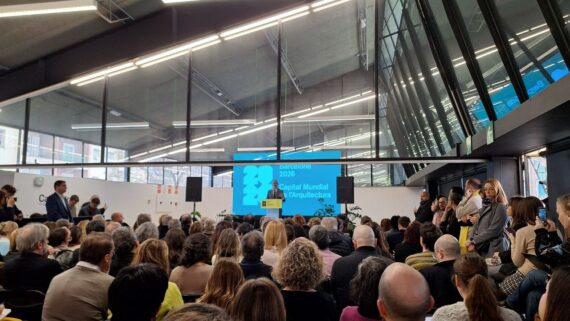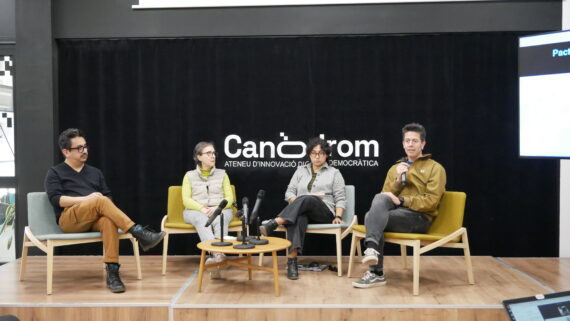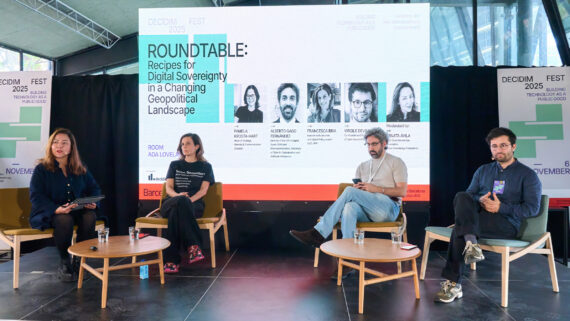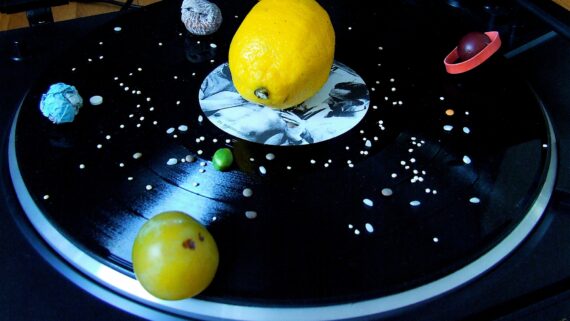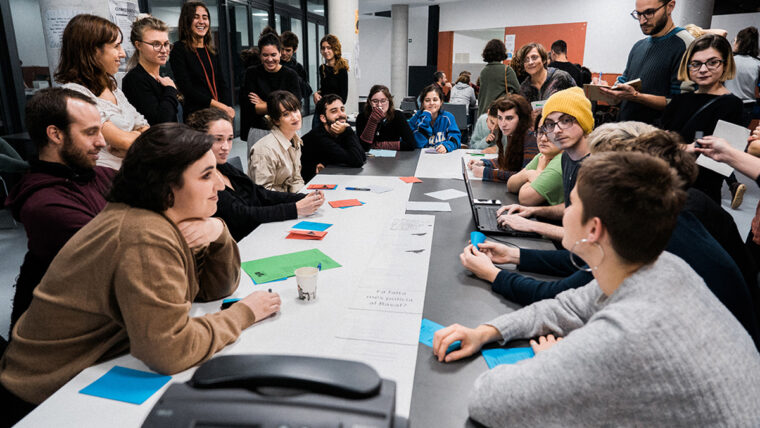
On Saturday, 15 November, Canòdrom will be the scene of a morning of critical reflection on artificial intelligence, communication and design. A morning to collectively imagine fairer and more sustainable alternatives in the digital era.
“How do we integrate these machines into our world? If linguistic competence —or artistic/information-processing competence— is not synonymous with deep understanding, human responsibility must remain central whenever these tools intersect with our institutions.” This question from the writer Leo Kim sums up the spirit of CruCruCru 2025, a festival arriving at its third edition with the intention of placing at the centre of debate one of the deepest transformations of our time.
An unprecedented transformation
The world of communication is undergoing an unprecedented shake-up. Electronic devices, social networks and now also artificial intelligence are everywhere. They speed up processes, transform professions and call into question the very foundations of the act of communicating. Faced with efficiency, speed, hyperproduction, saturation and the concentration of power… is it possible to imagine communication that is more human, critical and sustainable?
Journalists, designers, illustrators, writers, translators, artists. Increasingly, more of us are testing, exploring or getting hooked on generative AI. Tools created in the human image, yet utterly inhuman. Learning machines that simulate our intelligence without being intelligent. We know very little about how these AIs are fed or about the shadowy intentions of the companies behind them. But we know they have already begun to transform how we think, create, relate and work.
Intelligence is not artificial if it is collective
Under the slogan “Ideas, practices and alternatives for the communication of the future”, CruCruCru 2025 proposes a day to collectively rethink how to communicate in an algorithmic world. The festival does not present artificial intelligence as an abstract concept but as a reality that crosses our professional and life practices, inviting us to ask whether it is possible to inhabit the digital era without renouncing cooperative, sustainable and ethical values.
Organised by the cooperative l’Apòstrof, with the collaboration of Marta Delatte (Liquen Data Lab) in production and curatorship, and supported by the Canòdrom – Ateneu d’Innovació Digital i Democràtica, the festival will combine dialogues, workshops and art installations with proposals for participation and collective creation.
A morning of debate, experimentation and collective thought
From 9:45 to 14:30, Canòdrom will host an intensive programme combining critical reflection, participation and dialogue. The day will start with the idea panel “The communication we want” (10:00), with Patricia Ventura, Cristian Palazzi i Sara Borrella, who will open the debate on current communication challenges in times of artificial intelligence, climate change and attention crisis.
At 11:00 participants can join a coffee and collective mapping led by Núria Nia, to share emotions and practices around AI. Then, from 11:30 to 12:30, the central dialogue “Technologies of the we: bodies, machines and ecosystems in relation” will take place with philosophers Toni Navarro and Laura Benítez, moderated by Marta Delatte. A conversation to reclaim the collective, bodily and ecological dimension of artificial intelligence, and to remind us that behind every click, every query, every generated image there is a story of matter, energy and bodies.
After a short break, at 12:45 the alternatives panel “Views that transform” will take place with Taller Estampa, the project Intervisions and Anna Mundet, moderated by l’Apòstrof. A space to share practices and methodologies that propose new relationships between technology, ecology and culture, and to debunk AI myths and make visible the processes hidden behind its interfaces.
Art installations to rethink technology, a critical vermouth and a performative closing
The festival will close with a critical vermouth (13:30) that will open with a performative fragment of «Berenguera», a piece by Maria Jover and Gerard Franch about the potential of AI in dramaturgy and the performing arts, and which will give way to an open dialogue space between speakers and attendees.
In parallel, from 10:00 to 14:30, several art installations questioning the relationships between technology, power and ecology can be visited:
- Generative AI Cartography (Taller Estampa): A critical and creative look at the territories, infrastructures and material conditions that make artificial intelligence possible.
- Calculating Empires (Kate Crawford and Vladan Joler): A visual investigation tracing five centuries of interconnection between technology and power, mapping patterns of colonialism, militarisation and automation.
- Post-IKEA (Blanca Pia / Apòstrof): An experimental project that, with irony, explores IKEA’s influence on collective imagination through a neural network that generates new pages of a fictitious catalogue.
- The flowers are me (Marta Delatte): A scenic and digital installation that reimagines Mercè Rodoreda through AI and deepfake, proposing a poetic dialogue between literature, nature and technology.
An open and critical meeting point
CruCruCru is a festival that, since 2021, has been promoted by the cooperative l’Apòstrof to foster critical thinking and transformative practices in the fields of communication, design and culture. In each edition it offers a situated perspective on the challenges of our time, placing collaboration, sustainability and communicative justice at the centre. Because intelligence is never artificial if it is collective.

